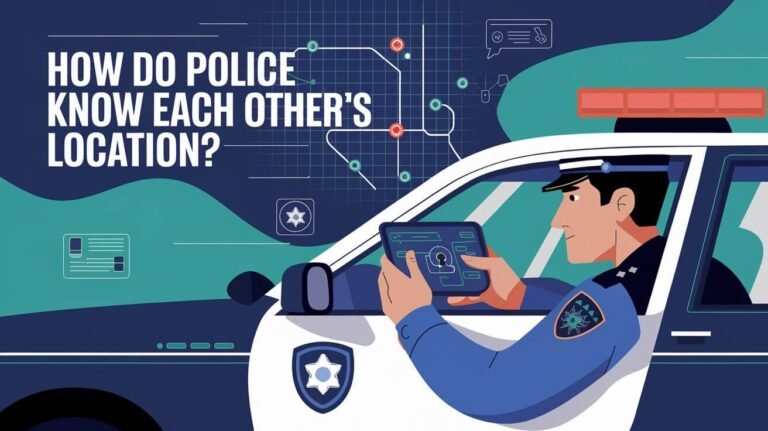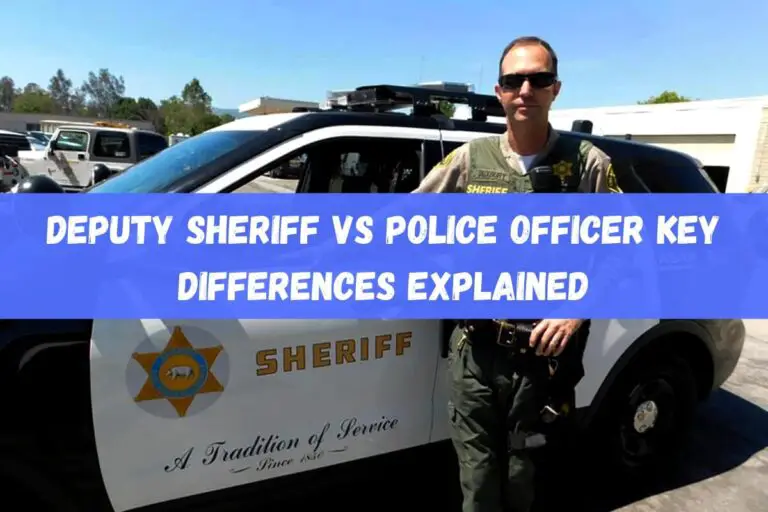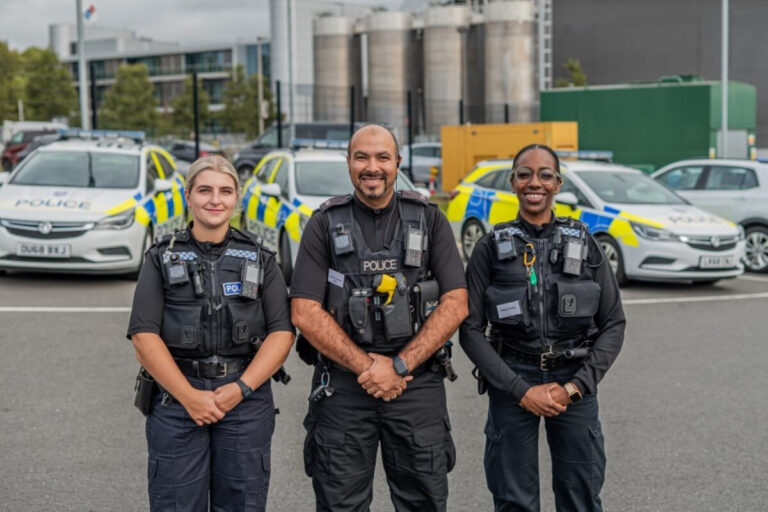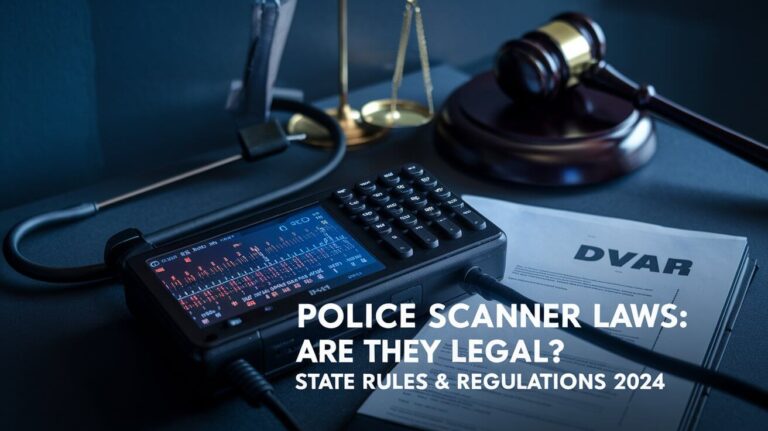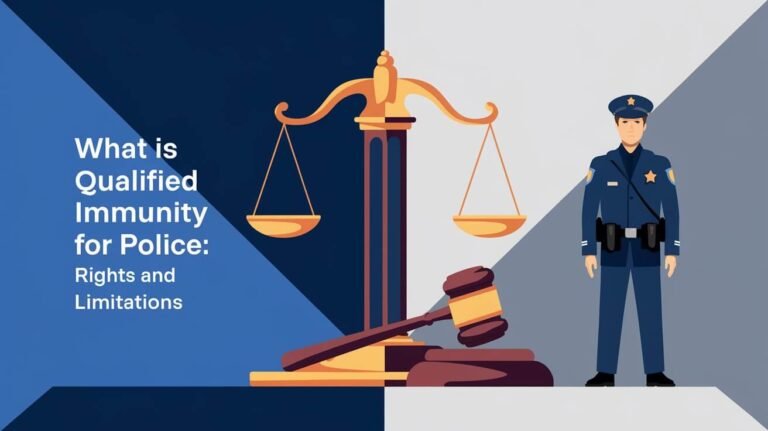Police Scanner Frequencies Georgia: Live Updates & Alerts

In Georgia, law enforcement uses many police scanner frequencies for safety and clear communication. There are 160 frequencies listed, with 72 agencies handling fire dispatch and 73 for EMS. Most, 93, start with “15”, and 98 with “154”. These frequencies are key to knowing about emergencies and safety issues in Georgia.
Police scanner frequencies are vital for Georgia’s law enforcement to quickly respond to emergencies. Fire Dispatches average at 154.46000, and EMS Dispatches at 154.20000. Henry County uses 7 radio frequencies for police work. Knowing these frequencies helps people stay updated on emergencies in their area.
Radio Frequency Basics for Georgia Public Safety
Knowing about the radio frequencies in Georgia is key for public safety. The state uses VHF and UHF bands for communication among law enforcement and emergency services. These frequencies are vital for smooth communication during emergencies.
Choosing between VHF and UHF depends on the agency’s needs. VHF is good for long-distance calls, while UHF works better in cities with tall buildings. Digital systems are preferred for their clear audio and encryption.
Frequency Bands Used in Georgia
Georgia employs various frequency bands, including VHF Low Band, VHF High Band, and UHF. The VHF Low Band spans from 39.46000 MHz to 45.88000 MHz. It has 4 channels for law enforcement. Using PL tone 156.7 is advised for full interoperability in these channels.
| Frequency Band | Frequency Range | Description |
|---|---|---|
| VHF Low Band | 39.46000 MHz – 45.88000 MHz | 4 channels designated for law enforcement |
| VHF High Band | 151.1600 MHz – 158.7000 MHz | Used for repeater channels VTAC33 to VTAC38 |
| UHF | 453.21250 MHz – 458.86250 MHz | 6 primary frequencies used for public safety |
Importance of Public Safety Frequencies
Public safety frequencies are critical for emergency communication. The choice between digital and analog systems, VHF and UHF, and trunked networks is vital. Understanding these frequencies helps public safety agencies respond quickly and effectively, keeping communities safe.
Georgia Law Enforcement Scanner Regulations
In Georgia, public safety agencies follow strict rules for using scanners. The Georgia Department of Public Safety (DPS) requires constant radio contact with a DPS Communications Center. All radios must be FCC-licensed and follow FCC rules.
People using scanners in Georgia need to know the rules. While owning a scanner is legal, using it for illegal activities is not. Using scanners for business is okay, as long as you follow the law.
Here are some important rules for using scanners in Georgia:
- Emergency calls always come first. All other users must stop talking until the emergency is over.
- Everyone must use the right signal codes. For example, “10-7” means you’re going offline, and “10-8” means you’re back on.
- You can’t talk on the radio near blasting sites. This is to avoid setting off electric blasting caps by accident.
Georgia’s scanner rules are to keep everyone safe and stop misuse. By following these rules, you can use scanners the right way. This helps you stay updated on safety in your area.
Police Scanner Frequencies Georgia: Complete Directory
To find police scanner frequencies in Georgia, you need a detailed directory. The state has 187 frequencies listed for police scanners. These include 85 FM, 57 DSTAR, and 45 EchoLink modes. Georgia’s scanner channels are divided into conventional and trunked frequencies, with some using dual-tone signaling.
The most common PL tone settings are 100.0 Hz and 141.3 Hz. Fulton County leads with 25 frequencies, followed by Gwinnett County with 12. Lowndes County has 7 frequencies. Atlanta has 16 frequencies, while Savannah and Augusta have 3 and 2, respectively.
Frequency Distribution by County
- Fulton County: 25 frequencies
- Gwinnett County: 12 frequencies
- Lowndes County: 7 frequencies
- Clayton County: 6 frequencies
- Bibb County: 6 frequencies
Police scanner frequencies directory in Georgia is very useful. It helps people stay informed about public safety. By using these frequencies, you can keep up with emergency responses and law enforcement activities. The Georgia scanner channels are key for anyone interested in police scanner frequencies in the state.
| County | Number of Frequencies |
|---|---|
| Fulton County | 25 |
| Gwinnett County | 12 |
| Lowndes County | 7 |
| Clayton County | 6 |
| Bibb County | 6 |
Required Equipment for Monitoring
To monitor police scanner frequencies in Georgia, you need the right equipment. The equipment depends on the frequencies used by local agencies. For instance, Jenkins County uses UHF, while Jefferson County uses VHF.
When picking a scanner, think about what you need to monitor. You might need a scanner that can handle both VHF and UHF frequencies. You might also need antennas or signal boosters for better performance. It’s important to know what you need for your area.
Here are some important things to consider when choosing your scanner: * Make sure it can receive the frequencies you want to monitor. * Look for good sensitivity to catch weak signals. * Choose a scanner with good selectivity to cut down on interference. * Consider a scanner with a reliable power source, like a battery or external power.
Understanding your monitoring needs and picking the right scanner, you can keep up with public safety in Georgia. This way, you’ll always be informed about what’s happening in your area.
| County | Frequency Type | Scanner Requirements |
|---|---|---|
| Jenkins County | UHF | Scanner with UHF frequency range |
| Jefferson County | VHF | Scanner with VHF frequency range |
Digital Encryption Protocols in Georgia
Georgia’s public safety agencies are moving to digital encryption for their talks. They use P25 phase I and II to keep their messages safe. Fayette County, Georgia, is switching to P25-Phase II. This will make their communications more efficient and reduce costs.
The P25 phase II system uses a technology called TDMA. It makes better use of radio waves. It also has a backup network for radios, making it more reliable. The Georgia Department of Public Safety uses P25 phase II to keep their talks private.
Benefits of Digital Encryption Protocols
The benefits of digital encryption include:
- Improved security and reliability for critical communications
- Increased channel capacity and reduced equipment costs
- Enhanced interoperability with external agencies
- Better protection of sensitive information from unauthorized access
Digital encryption, like P25 phase I and II, is getting more use in Georgia. As the need for safe talks grows, so will the use of these protocols. This will keep critical information even safer.
| Agency | Encryption Type |
|---|---|
| Georgia Department of Public Safety | P25 Phase II AES-256 |
| Fayette County | P25-Phase II |
| Atlanta Police Department | P25 AES-256 |
Metro Atlanta Special Operations Channels
The metro Atlanta area has many special operations channels. These are used by law enforcement agencies like SWAT teams and K-9 units. They help coordinate responses to emergencies, making the area safer.
To listen to these channels, you need to know the police scanner frequencies. The Atlanta Police Digital TRS uses frequencies from 155.625 MHz to 855.1125 MHz. The Fulton County Police also has specific frequencies, including 9 for police and 7 for school police.
Fire departments also use certain frequencies. For example, the “East Point Fire Dispatch” uses 158.775 MHz. The “Alpharetta Fire Dispatch” uses 453.575 MHz.
Here are some special operations channels in metro Atlanta:
- Atlanta Police Department: uses special operations channels to coordinate responses to emergency situations
- Fulton County Police: uses 9 police frequencies and 7 frequencies for the Fulton County Schools Police
- Fire departments: use frequencies such as 158.775 MHz and 453.575 MHz for dispatch
- Other agencies: use frequencies such as 154.980 MHz for police utility in Palmetto and 460.250 MHz for College Park police dispatch (though this frequency has expired)
These frequencies serve various purposes, like emergency response and public works. Knowing these frequencies helps keep the community safe and informed.
| Agency | Frequency | Purpose |
|---|---|---|
| Atlanta Police Department | 155.625 MHz – 855.1125 MHz | Special operations |
| Fulton County Police | 9 police frequencies | Law enforcement |
| East Point Fire Department | 158.775 MHz | Fire dispatch |
| Alpharetta Fire Department | 453.575 MHz | Fire dispatch |
Emergency Management Frequencies
Emergency management frequencies are key in Georgia for handling emergencies. The Georgia Emergency Management Agency (GEMA) uses specific frequencies for emergency talks. These help GEMA respond well to disasters and emergencies.
GEMA’s communications are critical in emergency management in Georgia. They use these frequencies to work with other agencies like FEMA. This teamwork helps save lives and lessen damage during emergencies.
Key Emergency Management Frequencies
- NOAA Series Weather Satellites Data Signals: 136.7700, 137.5000, 137.6200, 137.7700
- Dobbins Air Force Base designated frequencies: 138.0250, 138.1000, 138.3600, 138.9600, 139.4000
- FEMA designated frequencies: 138.2250, 138.5750, 139.1000, 139.2250, 139.4500, 139.8250, 139.9500, 140.0250, 140.9000, 141.7250, 141.8750, 141.9500, 142.0250, 142.3500, 142.3750, 142.4200, 142.4250, 142.9250, 142.9500, 142.9750
Knowing these emergency management frequencies is vital for a good emergency response in Georgia. GEMA and other agencies use these frequencies to work together. This teamwork helps them provide better support during emergencies.
Scanner Programming Tips
Programming a police scanner can seem hard, but it’s easier with the right tips. First, know the different types of scanners and what they can do. Handheld scanners are perfect for moving around, while desktop scanners have more features and better reception.
To program your scanner right, you need the correct police scanner frequencies for your area. In Georgia, the Georgia State Patrol (GSP) uses frequencies like 154.905 for statewide backup and 458.4875 for mobile extender 2. You can find a list of frequencies for different counties in Georgia to make sure you get the right signals.
Here are some scanner programming tips to remember:
- Enter frequencies correctly to avoid missing important transmissions
- Set up scan lists to prioritize the channels you want to monitor
- Troubleshoot common problems, such as poor reception or incorrect frequency entry
Following these tips and using the correct frequencies, you’ll become a pro at using your police scanner. Always remember to follow local rules and guidelines when using your scanner.
Endnote
As we wrap up this guide to police scanner frequencies in Georgia, it’s clear they’re very useful. They help us stay updated on public safety and emergencies. By knowing the law enforcement frequencies across the state, we can prepare for and respond to events better.
Using a police scanner or a mobile app can give us real-time info during crises. Knowing how to use the right equipment and set it up is key. This way, we can keep up with what’s happening in our community.
With new tech like digital encryption protocols and trunked radio networks, we must keep learning. Following the tips in this article will help you stay current with Georgia’s police scanner frequencies. This way, you can be an informed and active citizen.
Questions We Get Asked
What are the different types of radio frequencies used by law enforcement agencies and public safety organizations in Georgia?
In Georgia, law enforcement uses VHF and UHF bands. They also use digital and analog systems. For example, the Georgia Bureau of Investigation uses VHF. The Georgia Department of Public Safety uses UHF.
What are the regulations surrounding the use of police scanners in Georgia?
Georgia has rules for police scanners. People need to know about these rules. For instance, the Georgia Department of Corrections uses encrypted frequencies to keep their talks private.
Where can I find a complete directory of police scanner frequencies in Georgia?
You can find a full list of police scanner frequencies in Georgia. It covers the Atlanta area, North Georgia, Coastal Georgia, and South Georgia. It includes frequencies for the Atlanta Police Department and the Fulton County Sheriff’s Office.
What equipment is needed to monitor police scanner frequencies in Georgia?
To listen to police scanner frequencies in Georgia, you need the right scanner. You can choose handheld or desktop scanners. The choice depends on the frequencies you want to receive, like VHF and UHF.
What digital encryption protocols are used in Georgia for public safety communications?
Georgia uses P25 phase I and II systems for digital encryption. These systems have benefits but also challenges. The Georgia Department of Public Safety uses P25 phase II to keep their talks secure.
What are the special operations channels used in the metro Atlanta area?
In metro Atlanta, special operations channels are used. These include frequencies for SWAT teams and K-9 units. Agencies like the Atlanta Police Department use these channels for emergency responses.
What are the emergency management frequencies used in Georgia?
Georgia’s emergency management frequencies are used by GEMA and other agencies. They help coordinate responses to emergencies, like natural disasters.
How can I program a police scanner to receive frequencies used by law enforcement agencies in Georgia?
To program a police scanner, you need to enter frequencies and set up scan lists. You also need to troubleshoot common issues. This lets you receive frequencies from the Georgia State Patrol and other agencies.

